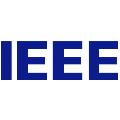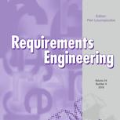Artificial Intelligence (AI) systems have gained significant traction in the recent past, creating new challenges in requirements engineering (RE) when building AI software systems. RE for AI practices have not been studied much and have scarce empirical studies. Additionally, many AI software solutions tend to focus on the technical aspects and ignore human-centered values. In this paper, we report on a case study for eliciting and modeling requirements using our framework and a supporting tool for human-centred RE for AI systems. Our case study is a mobile health application for encouraging type-2 diabetic people to reduce their sedentary behavior. We conducted our study with three experts from the app team -- a software engineer, a project manager and a data scientist. We found in our study that most human-centered aspects were not originally considered when developing the first version of the application. We also report on other insights and challenges faced in RE for the health application, e.g., frequently changing requirements.
翻译:人工智能(AI)系统在最近一段时间里获得了巨大的牵引力,在建设AI软件系统时在需求工程(RE)方面造成了新的挑战。AI软件的RE没有得到多少研究,而且经验研究很少。此外,许多AI软件解决方案往往侧重于技术方面,忽视以人为中心的价值观。在本文件中,我们报告了利用我们的框架和以人为中心的可再生能源支持工具为AI系统进行开发和建模要求的案例研究。我们的案例研究是一个流动健康应用软件,鼓励2型糖尿病人减少其定居行为。我们与应用团队的三名专家 -- -- 一名软件工程师、一名项目经理和一名数据科学家 -- -- 进行了我们的研究。我们在研究中发现,最初在开发第一版应用程序时没有考虑到大多数以人为中心的方面。我们还报告了用于健康应用的RE中的其他洞察力和挑战,例如经常改变的需求。




